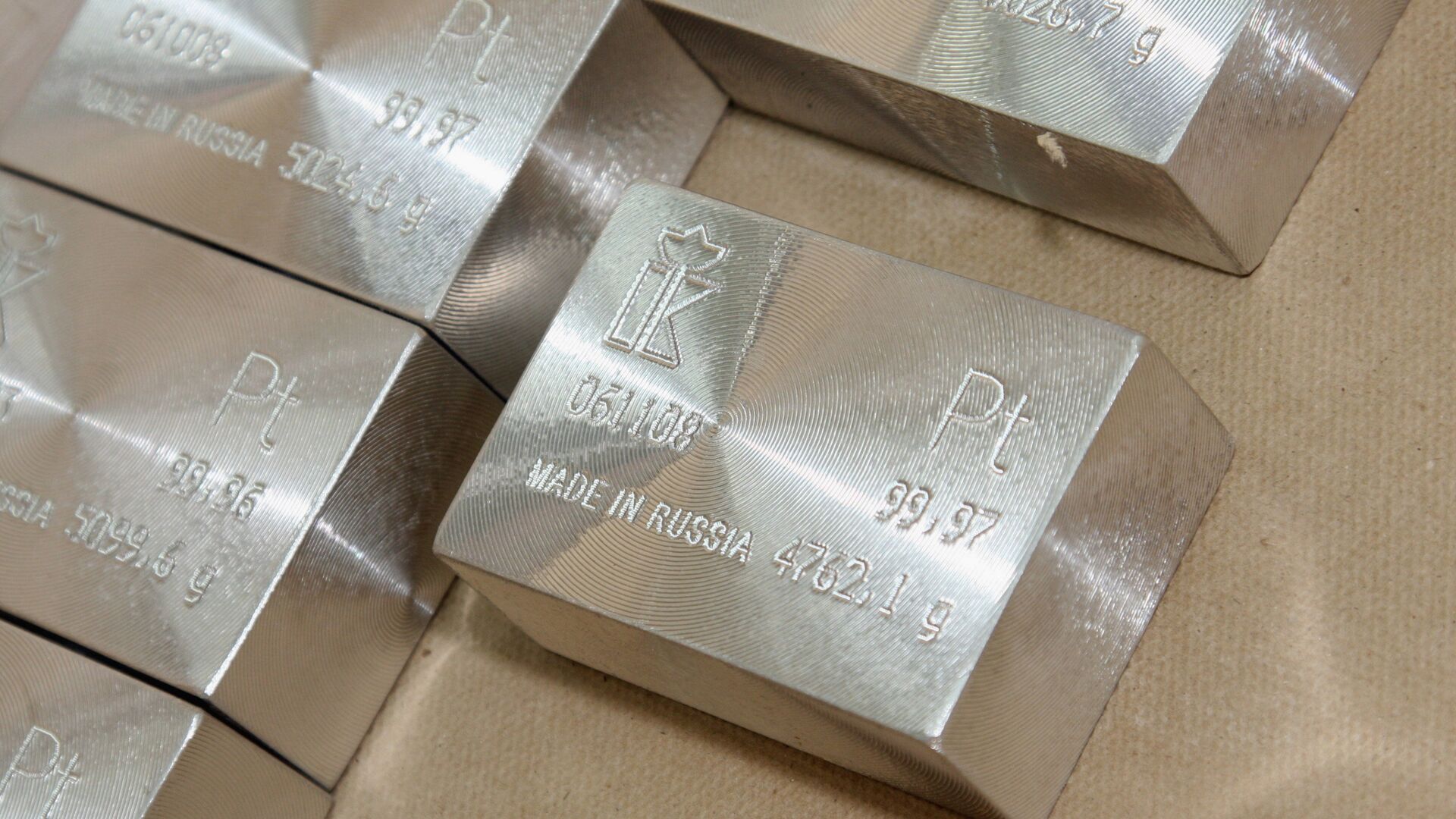https://sputnikglobe.com/20220607/scientists-develop-cheaper-more-efficient-platinum-based-catalyst-for-chemical-reactions-1096099921.html
Scientists Develop Cheaper, More Efficient Platinum-Based Catalyst for Chemical Reactions
Scientists Develop Cheaper, More Efficient Platinum-Based Catalyst for Chemical Reactions
Sputnik International
The invention should decrease the cost of both energy and platinum for catalytic reactions, as well as reduce the carbon footprint – an important benefit for... 07.06.2022, Sputnik International
2022-06-07T18:58+0000
2022-06-07T18:58+0000
2022-06-07T19:44+0000
science & tech
platinum
businesses
https://cdn1.img.sputnikglobe.com/img/102880/76/1028807683_0:125:3001:1813_1920x0_80_0_0_39e3215447d3666b8f267806f02ceee8.jpg
Scientists from the UNSW Sydney and RMIT in Australia have discovered a way to make platinum, a catalyst that can be used to accelerate chemical reactions such as those used in fertiliser production, cheaper and more effective to use.Normally, using platinum as a catalyst is costly and thus unsuitable for producing cheaper goods. Moreover, it must be ground as small as possible to increase its efficiency and is prone to coking – a process in which a catalyst becomes covered in carbon and is no longer usable.However, Australian researchers have discovered a way to dissolve platinum in liquid gallium – a metal that liquefies at around 30 degrees Celsius (unlike platinum which melts at 1,700 degrees). In such a state, not only is platinum protected from coking, making a platinum-gallium catalyst more reusable, but it also requires smaller amounts of the expensive noble metal.With platinum being effectively dissolved into separate atoms, it effectively obtains the highest surface-to-volume ratio possible. In other words, much smaller volumes of pure platinum will be required for catalytic reactions.While the platinum-gallium catalyst will still be more expensive than cheaper ones, such as iron, it has another advantage over them. Cheaper catalysts require immense amounts of heating in order to function more or less on par with noble metals – one of the best catalysts available. With the platinum-gallium catalyst, however, only a limited amount of heat is required to produce it, and none is needed in the process of its use (due to the compound inheriting the melting temperature of gallium).In addition, cheaper catalysts are more difficult to re-use, while the platinum-gallium liquid catalyst can be cleared and used again due to both components not reacting with reagents.Let's stay in touch no matter what! Follow our Telegram channel to get all the latest news: https://t.me/sputniknewsus
Sputnik International
feedback@sputniknews.com
+74956456601
MIA „Rosiya Segodnya“
2022
Tim Korso
https://cdn1.img.sputnikglobe.com/img/07e6/03/0d/1093831826_0:0:216:216_100x100_80_0_0_e3f43a960af0c6c99f7eb8ccbf5f812c.jpg
Tim Korso
https://cdn1.img.sputnikglobe.com/img/07e6/03/0d/1093831826_0:0:216:216_100x100_80_0_0_e3f43a960af0c6c99f7eb8ccbf5f812c.jpg
News
en_EN
Sputnik International
feedback@sputniknews.com
+74956456601
MIA „Rosiya Segodnya“
Sputnik International
feedback@sputniknews.com
+74956456601
MIA „Rosiya Segodnya“
Tim Korso
https://cdn1.img.sputnikglobe.com/img/07e6/03/0d/1093831826_0:0:216:216_100x100_80_0_0_e3f43a960af0c6c99f7eb8ccbf5f812c.jpg
science & tech, platinum, businesses
science & tech, platinum, businesses
Scientists Develop Cheaper, More Efficient Platinum-Based Catalyst for Chemical Reactions
18:58 GMT 07.06.2022 (Updated: 19:44 GMT 07.06.2022) The invention should decrease the cost of both energy and platinum for catalytic reactions, as well as reduce the carbon footprint – an important benefit for some economies.
Scientists from the UNSW Sydney and RMIT in Australia have discovered a way to make
platinum, a catalyst that can be used to accelerate chemical reactions such as those used in fertiliser production, cheaper and more effective to use.
Normally, using platinum as a catalyst is costly and thus unsuitable for producing cheaper goods. Moreover, it must be ground as small as possible to increase its efficiency and is prone to coking – a process in which a catalyst becomes covered in carbon and is no longer usable.
However, Australian researchers have discovered a way to dissolve platinum in liquid gallium – a metal that liquefies at around 30 degrees Celsius (unlike platinum which melts at 1,700 degrees). In such a state, not only is platinum protected from coking, making a platinum-gallium catalyst more reusable, but it also requires smaller amounts of the expensive noble metal.
"When dissolved, platinum atoms are spatially dispersed in the liquid gallium matrix without atomic clustering (i.e., the absence of platinum-platinum bonding) that can drive different catalytic reactions with remarkable mass activity", the research paper says.
With platinum being effectively dissolved into separate atoms, it effectively obtains the highest surface-to-volume ratio possible. In other words, much smaller volumes of pure platinum will be required for catalytic reactions.
While the
platinum-gallium catalyst will still be more expensive than cheaper ones, such as iron, it has another advantage over them. Cheaper catalysts require immense amounts of heating in order to function more or less on par with noble metals – one of the best catalysts available. With the platinum-gallium catalyst, however, only a limited amount of heat is required to produce it, and none is needed in the process of its use (due to the compound inheriting the melting temperature of gallium).
"A range of important chemical reactions could be performed at relatively low temperature with the use of a more efficient catalyst like liquid platinum", said lead author Md. Arifur Rahim, chemical engineer from UNSW Sydney.
In addition, cheaper catalysts are more difficult to re-use, while the platinum-gallium liquid catalyst can be cleared and used again due to both components not reacting with reagents.
Let's stay in touch no matter what! Follow our Telegram channel to get all the latest news: https://t.me/sputniknewsus 



